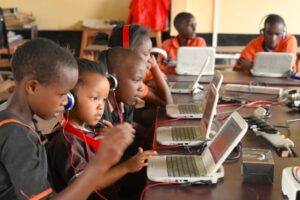The Role of Education in Addressing Social Challenges in Nigeria

The Role of Education in Addressing Social Challenges in Nigeria
Education is crucial in addressing social challenges in Nigeria. It equips individuals with skills for a dynamic workforce, breaks the cycle of poverty, and fosters economic empowerment. Education promotes social cohesion, unity, and understanding among diverse communities.
By acquiring skills and knowledge, individuals can secure better-paying jobs and improve their economic prospects. Education helps break the cycle of poverty, enabling individuals to improve their socio-economic status. It promotes unity and understanding among diverse communities, building a more cohesive and harmonious society.
Education empowers girls and women, enabling them to become agents of change and leaders in their communities. It addresses socioeconomic barriers, providing individuals with the skills and knowledge needed to access better job opportunities and improve their economic prospects.
However, Nigeria’s education sector faces challenges, including inadequate funding, poor infrastructure, shortage of qualified teachers, and examination malpractice. To address these challenges, the government has introduced policies like the Universal Basic Education program and teacher training initiatives.
Innovative solutions can enhance education in Nigeria. Integrating ICT in education can make teaching and learning more accessible and effective. Public-private partnerships can enhance funding, infrastructure, and innovative teaching methods. Curriculum reform can make education more relevant to modern societal needs, focusing on STEM subjects and vocational skills.
Community engagement is also essential, involving communities in school management to foster a sense of ownership, accountability, and support for education. By prioritizing education and addressing the challenges facing the sector, Nigeria can unlock the potential of its citizens and drive national development.
In conclusion, education is vital for addressing social challenges in Nigeria. It promotes economic empowerment, breaks the cycle of poverty, and fosters social cohesion. With innovative approaches and government support, Nigeria can improve access, quality, and outcomes in education, driving national development and unlocking the potential of its citizens.






